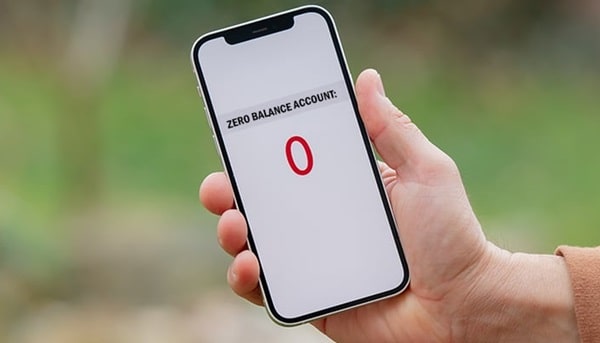For many people with low incomes, getting affordable and safe financial services can be really hard. Regular bank accounts need you to keep a certain amount of money in them all the time, which is tough for people just starting out or with irregular pay. That’s where zero-balance accounts step in, offering a lifeline to financial inclusion and empowerment.
What are Zero-Balance Accounts?
A zero-balance bank account allows you to hold an account without maintaining a minimum balance. This means you don’t get charged fees for not having a certain amount of money in the account. These accounts often come with features like debit cards for transactions and ATM withdrawals, making them a convenient option for managing your finances, even with minimal funds.

The Advantages of Zero-Balance Accounts for Low-Income Individuals
Having a zero-balance account is super important for people with low incomes, and here’s why:
1. Easy to Open
Opening a bank account can be hard for many people, especially those with low incomes. They might not have the right documents or live near a bank. But, zero balance accounts can help. These accounts let people open an account without needing much money in it from the start. Plus, some banks in India let people open these accounts online. This is super helpful for folks who live far from banks. It gives them access to banking services without having to go to a bank in person.
2. No Minimum Balance Requirement
A zero-balance account offers unmatched flexibility, making it great for people with unstable incomes. Since there’s no rule about keeping a minimum balance, they can put in as much money as they want. They can also take out all or most of their money whenever they need it, which is super helpful during tough times.
3. Encourages Savings
Zero-balance accounts also help people save money. Even if someone doesn’t have much to save, these accounts let them start without needing to keep a minimum balance. Saving even small amounts can grow over time.
Some banks even give rewards for saving in zero-balance accounts. In places like India, they might offer higher interest rates or cashback bonuses if you keep a certain amount in your zero-balance account. These perks can encourage people with low incomes to save money and keep doing it.
4. Provides Access to Other Financial Services
Zero balance accounts offer more than just a place to keep money safe. They also let people use other banking services. For instance, some banks might offer overdrafts or credit cards to folks who keep a zero balance for a while. This can be super helpful for people with low incomes who might need to borrow money or use other financial tools.
Plus, having a bank account can help folks get government benefits and support. In places like India, there are programs like the Pradhan Mantri Jan Dhan Yojana (PMJDY) scheme. Its goal is to make sure every family has a bank account. With a zero-balance account, people with low incomes can join these programs and get financial help they might not have access to otherwise.
5. Less Need for Borrowing from Informal Sources
People with low incomes in rural areas usually rely on informal loans, such as those from moneylenders, to manage their money. The problem is, these informal loans often have high interest rates and can make people stuck in debt. With access to regular banking services, like accounts with zero balance requirements, people can avoid relying too much on these informal loans and stay clear of getting caught in debt troubles.
6. Good Interest Rates
Banks now offer zero balance savings accounts with really good interest rates. This means that even people with very little money can earn some extra cash on what they save.
Beyond the Basics
Having a zero-balance account isn’t just about holding money. It can help you build a better financial future:
- Government Benefits: Get government benefits and help straight into your account, making sure you can access them safely and on time.
- Direct Deposits: Encourage employers to deposit wages directly, promoting financial stability and budgeting.
- Financial Planning: Use online banking tools to watch how you spend money, set goals to save, and make smart choices about your finances.
Closing Thoughts
Having bank accounts with zero balance can be a great way to include more people in the financial system, especially those with low incomes. When it’s simple to open a bank account online without any fees and people are encouraged to save money, it can break the cycle of poverty and make them financially stable. These accounts also give access to other financial services and lessen the need for informal borrowing. Banks can help a lot by providing zero balance accounts and basic financial services. This way, we can make the financial system fairer and more inclusive for everyone.

Meet Suhas Harshe, a financial advisor committed to assisting people and businesses in confidently understanding and managing the complexities of the financial world. Suhas has shared his knowledge on various topics like business, investment strategies, optimizing taxes, and promoting financial well-being through articles in InvestmentDose.com


